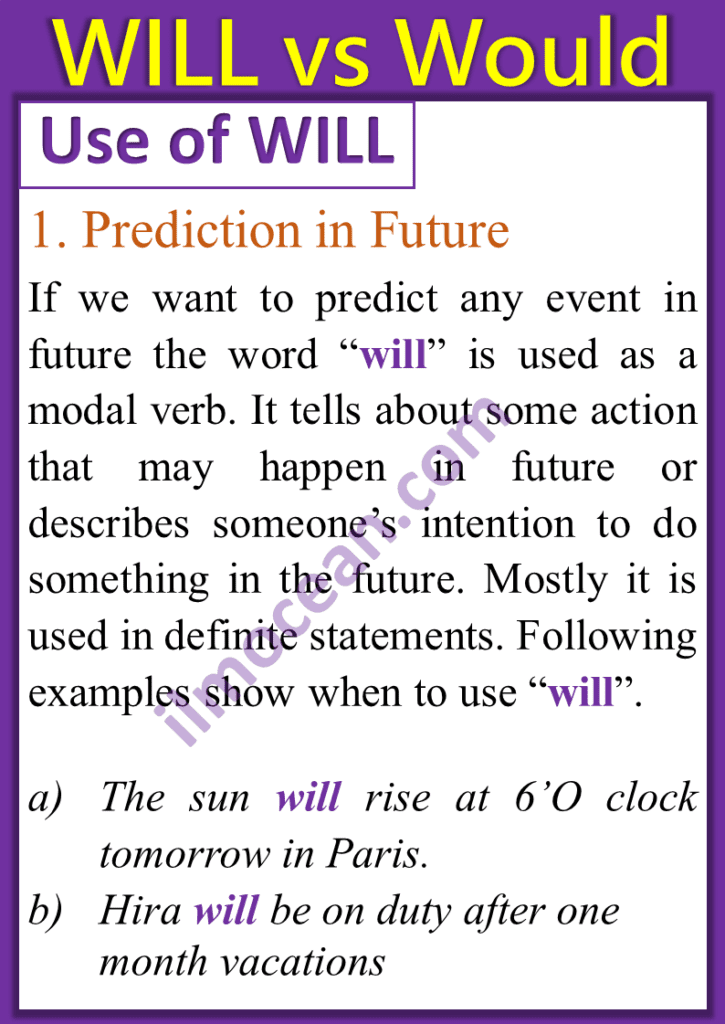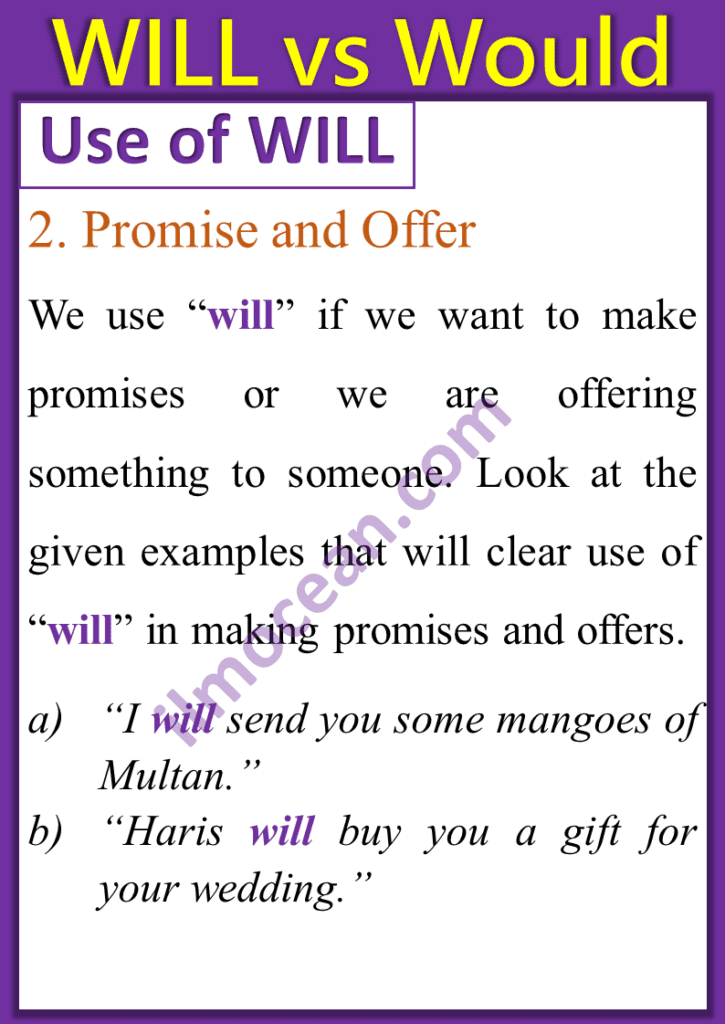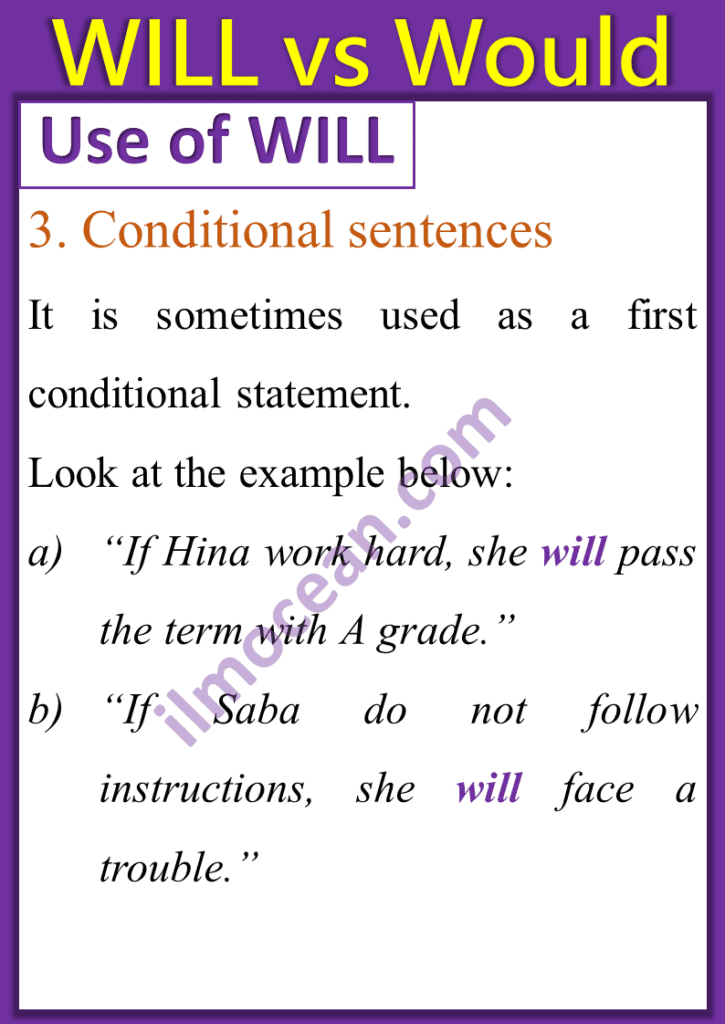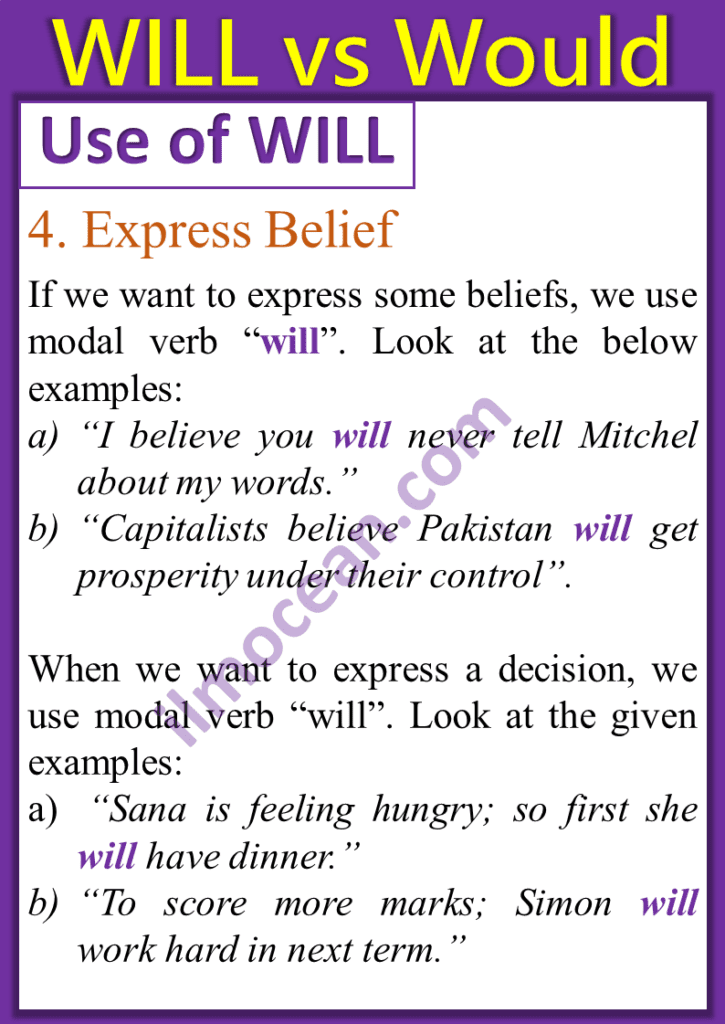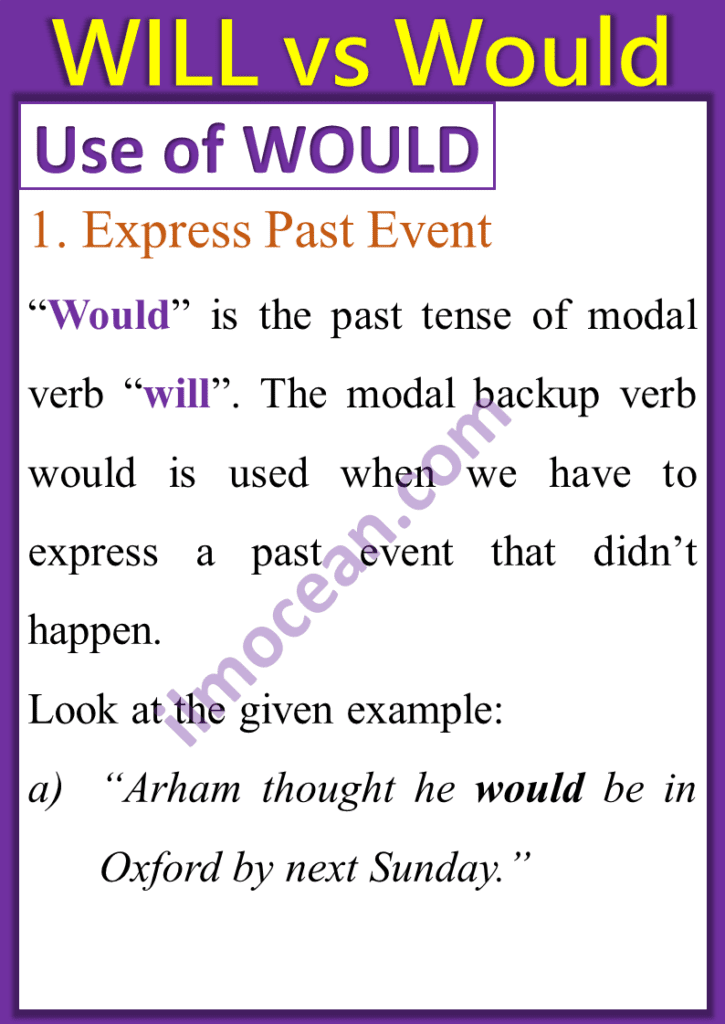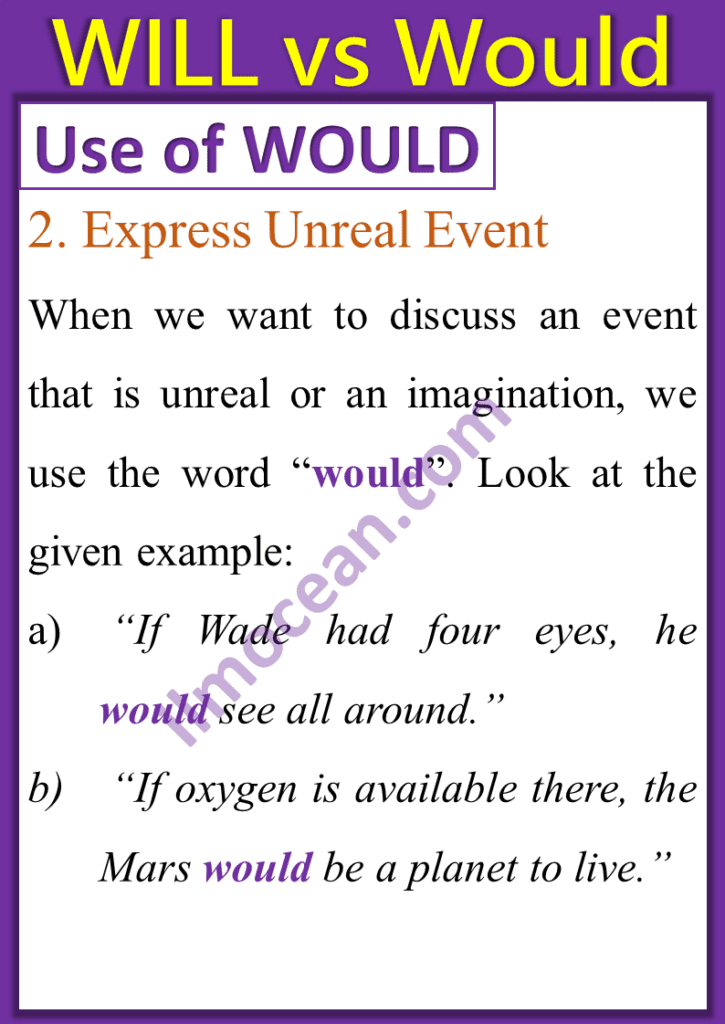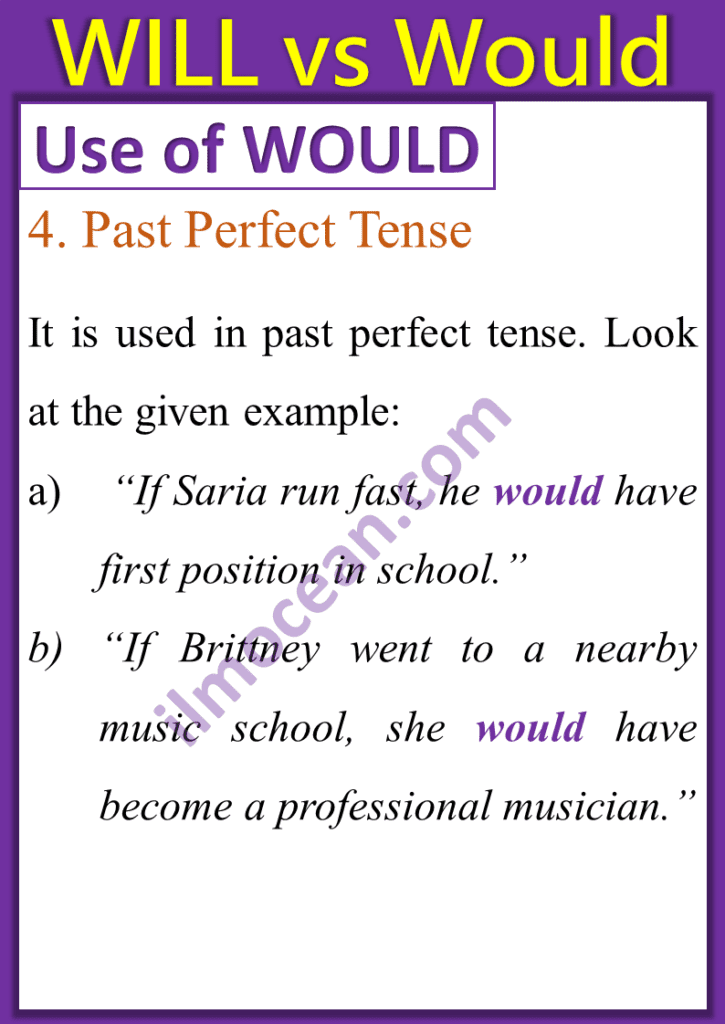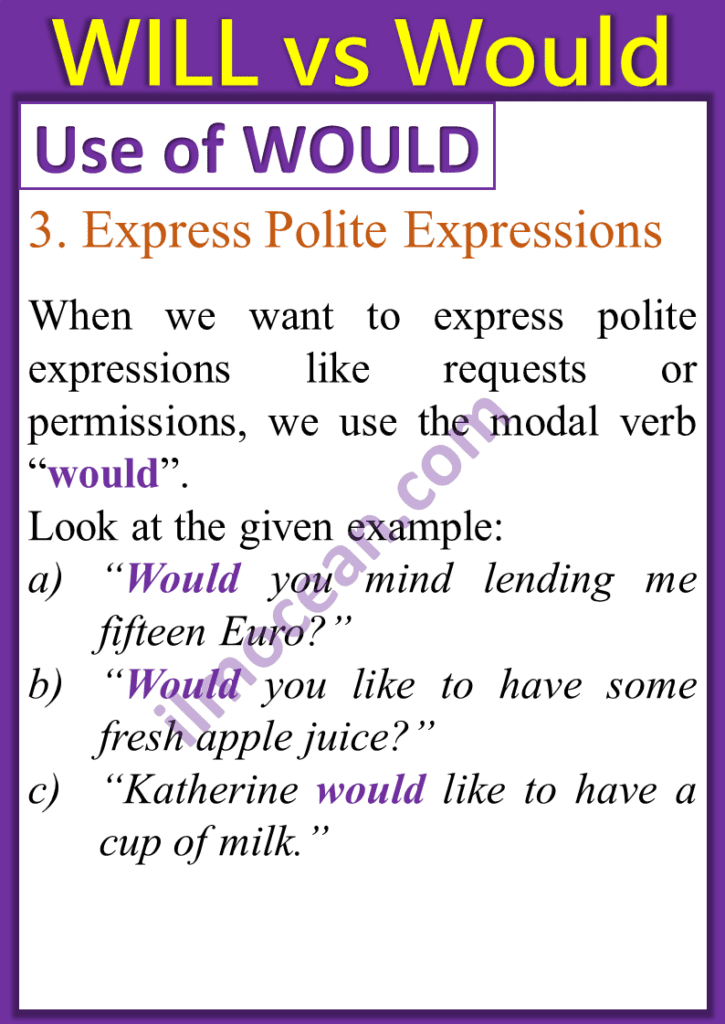Use of will and would are very important in grammar. Use of will and would is very tricky and it is very difficult to differentiate them. If we follow proper rules then we can understand the use of will and would. “Will” and “would” used as modal helping verbs in English grammar that we use often in sentences and are very important in English grammar. Both words are so similar that it is very difficult to use them properly. So both words require much attention when we use them in a sentence to avoid mistakes. If we use these modal helping verbs in a wrong way then it can cause much confusion to understand the meaning of any sentence. So it is very important to understand when to use the modal verb “will” and “would”. Here are some rules which will guide you to the correct usage of “will” and “would” in English grammar.
We will explain many differences between uses of “will” and “would” that will definitely improve your understanding. You will understand basic differences between will and would and also learn their use in a sentence.
Use of the Word Will.
- Prediction in future
If we want to predict any event in future the word “will” is used as a modal verb. It tells about some action that may happen in future or describes someone’s intention to do something in the future. Mostly it is used in definite statements. Following examples show when to use “will”.
- The sun will rise at 6’O clock tomorrow in Paris.
- Hira will be on duty after one month vacations
- 2.Promise and offer
We use “will” if we want to make promises or we are offering something to someone. Look at the given examples that will clear use of “will” in making promises and offers.
“I will send you some mangoes of Multan.”
“Haris will buy you a gift for your wedding.”
- Conditional sentences
It is sometimes used as a first conditional statement. Look at the example below:
“If Hina work hard, she will pass the term with A grade.”
“If Saba do not follow instructions, she will face a trouble.”
- Express belief
If we want to express some beliefs, we use modal verb “will”. Look at the below examples:
“I believe you will never tell Mitchel about my words.”
“Capitalists believe Pakistan will get prosperity under their control”.
When we want to express a decision, we use modal verb “will”. Look at the given examples:
“Sana is feeling hungry; so first she will have dinner.”
“To score more marks; Simon will work hard in next term.”
How to Use the Word Would?
- Express past event
“Would” is the past tense of modal verb “will”. The modal backup verb would is used when we have to express a past event that didn’t happen. Look at the given example:
“Arham thought he would be in Oxford by next Sunday.”
- Express unreal event
When we want to discuss an event that is unreal or an imagination, we use the word “would”. Look at the given example:
“If Wade had four eyes, he would see all around.”
“If oxygen is available there, the Mars would be a planet to live.”
- Express event held in past
If anyone wants to report the past conversation, he should use the modal verb “would”. We also use it to express any event held in the past. Look at the given example:
“Raheel wasn’t feeling fresh, so he would have a cup of tea.”
- Use in past perfect tense
It is used in past perfect tense. Look at the given example:
“If Saria run fast, he would have first position in school.”
“If Brittney went to a nearby music school, she would have become a professional musician.”
- Express polite expressions
When we want to express polite expressions like requests or permissions, we use the modal verb “would”. Look at the given example:
“Would you mind lending me fifteen Euro?”
“Would you like to have some fresh apple juice?”
“Katherine would like to have a cup of milk.”
Significant differences between Will and Would
We are discussing some basic differences between will and would. Keep in mind these differences to improve your understanding for use of Will and would.
When we have to express definite events or things that are going to happen in future, we use the word “will”. On the other hand, when we have to express an event or thing that is not certain or no longer possible in future or in past as well, we use the modal verb “would”.
In grammar, the modal verb “will” is used only in present tense but in contrast the modal verb “would” is used in past tense as well.
When we want to express prediction, decisions, offers, and promises in a sentences, we use the word “will”. In contrast, when we want to express permission, requests, preferences, and making arrangements in a sentences, we use the word “would”.
In first conditional statement, we use the modal verb “will”. While talking about second or third conditional statements, we use the modal verb “would”.
Download PDF here:will and would pdf
